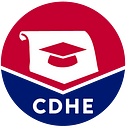Philosophize this: Closing gender equity gaps in higher education
By Nate Evans
Philosophy, contemporarily and historically, is no stranger to the problems which face higher education in general. Many of these problems are reducible to a single, common feature: access. Most severely, the problem of access manifests as an identity-based disparity, generated by both systemic and particular instances of discrimination. But, like many of the other movements and policies in higher education, philosophy at the undergraduate level here in Colorado is making a specific push to promote access and unravel identity-based, exclusory contours from its discipline.
I had the wonderful opportunity to witness one of these pushes in the philosophical community at the Fourth Annual Undergraduate Women’s Philosophy Conference hosted earlier this year by several philosophy faculty at MSU Denver. Created and organized over the past four years by MSU Denver Philosophy Professors, Drs. Goodnick and Quinn, the conference is one of only a few official women’s philosophy conferences of its kind in the nation.
The conference experienced a large increase in paper submissions this year and featured presentations from undergraduate women philosophers from universities nationwide. Paper presentations covered a wide range of topics, including metaphysics, ethics, feminist theory, comparative philosophy and meta-philosophical questions on reforming and teaching the philosophical canon.
Two undergraduate women from my university had papers selected to be presented at the conference. Vanessa Salazar presented her paper, “Counterpart Theory and its Implication on Free Will,” which argued that David Lewis’ theory of modality makes free will impossible due to the maximality of possibility space and the lack of trans-world identity. Flor Mendoza-Martinez presented her paper, “Philosophy Through the Guilty Silence,” which offered a critical investigation of the selective way in which canonized philosophers’ work is taught so as to exclude any offensive, sexist or racist ideologies they put forward. Flor demonstrated how this canonical “tidying-up” gives a dishonest representation of the history of philosophy and perpetuates an exclusive philosophical canon.
In addition to the presented papers, a workshop was held to address problems that women still face in academic and professional philosophy today. Four guest philosophy professors shared their own experiences and took questions from undergraduate women, engaging in conversation about how to address problems of access and methodologies for overcoming related problems in higher education. A theme of the discussions and recommendation of the guest faculty was how to network alliances within undergraduate’s home department, get involved in groups and conferences that expand nationwide and overcome specific direct instances of discrimination.
This conference is a powerful testament to the importance philosophy programs across Colorado have placed on inclusive engagement, specifically in empowering women. Its rapid growth and influence demonstrates the increasing solidarity and promotion of inclusion in philosophy at the university level and a trend that will continue to grow and promote access in higher education.
Nate Evans is a rising senior at the University of Northern Colorado studying philosophy and Spanish. Once finished with his undergraduate degree, he plans to pursue graduate studies and then teach philosophy and Spanish at the high-school level.
Our Student Voices series publishes blog posts written by Colorado undergraduate and graduate students. Interested in contributing? Email Lindsay Sandoval at lindsay.sandoval@dhe.state.co.us.
